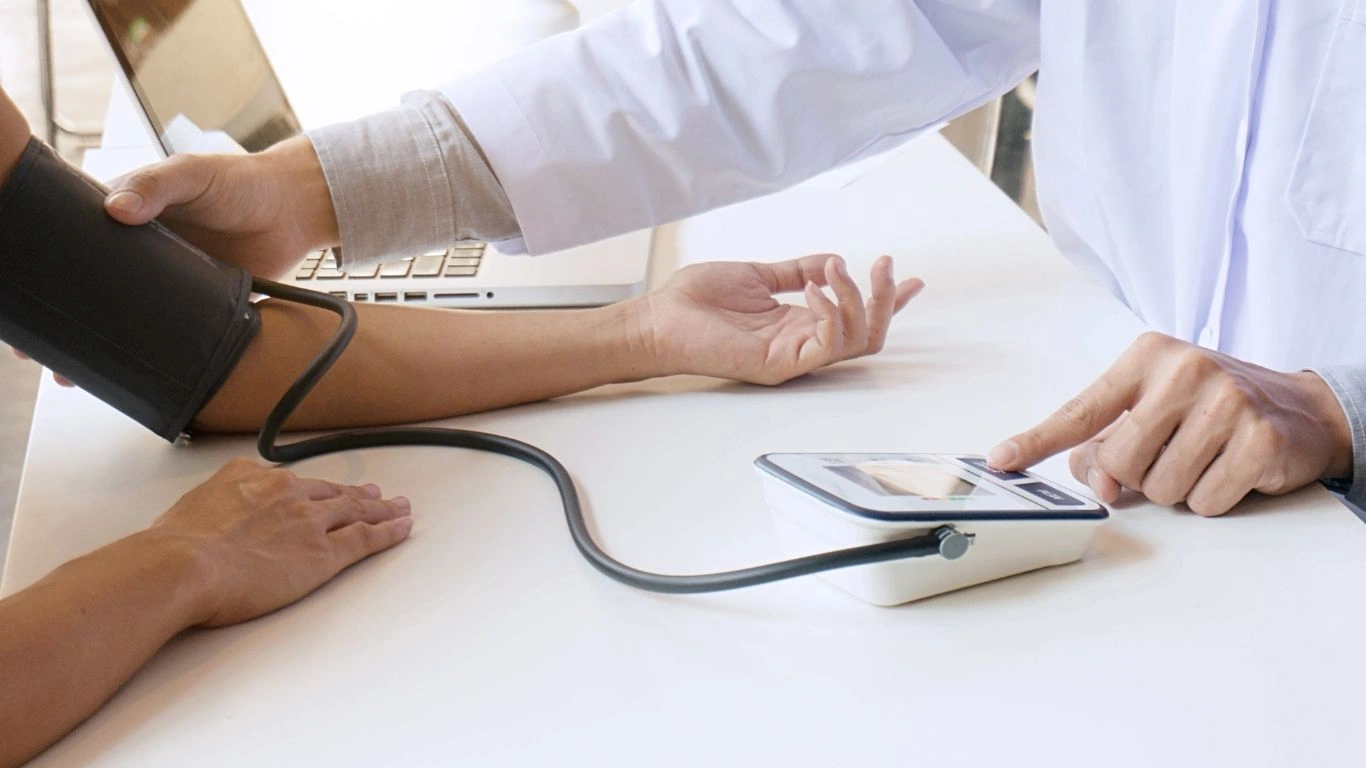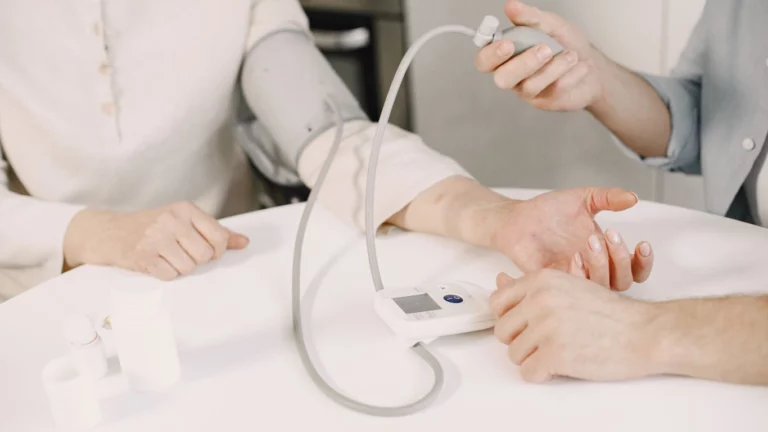How Apple Cider Vinegar Lowers Blood Pressure: A Natural Remedy You Need to Know
Ever wondered if something as simple as apple cider vinegar could help you manage your blood pressure? Well, it might just be the natural remedy you’re looking for! Let’s dive into how this humble kitchen staple could potentially lower your blood pressure and why it’s gaining popularity among health enthusiasts.
What’s the Deal with Apple Cider Vinegar and Blood Pressure?
If you’re like most people, you probably keep a bottle of apple cider vinegar (ACV) in your kitchen, whether for cooking or as a remedy for various health issues. But here’s something you might not have heard: ACV could help lower your blood pressure! It sounds too good to be true, right? Let’s break it down to see if it really works and if you should start incorporating it into your daily routine. 
How Does Apple Cider Vinegar Help with Blood Pressure?
So, what’s going on when you drink a bit of ACV to help with blood pressure? Apple cider vinegar is packed with acetic acid, potassium, and other compounds that might contribute to heart health. When consumed regularly in moderate amounts, some studies suggest that ACV can have a positive impact on both your blood pressure and overall heart health. Here’s a quick rundown of the science behind it:
- Potassium Content: ACV contains a decent amount of potassium, which helps balance sodium levels in the body. When you have too much sodium and not enough potassium, it can lead to high blood pressure. So, balancing the two can play a role in keeping your blood pressure in check.
- Improved Blood Flow: Some studies suggest that ACV can help dilate blood vessels, improving circulation and potentially lowering blood pressure. This could mean better blood flow and a reduced risk of hypertension.
- Weight Loss Benefits: Another factor that comes into play is weight loss. Apple cider vinegar has been linked to boosting metabolism and promoting feelings of fullness, which can lead to weight loss. Since being overweight is a major risk factor for high blood pressure, losing even a little bit of weight might help lower your numbers.

What Does the Research Say?
When it comes to natural remedies, it’s always good to check what the research has to say. Some studies have shown promising results for apple cider vinegar’s role in lowering blood pressure. For example, a study in Bioscience, Biotechnology, and Biochemistry found that consuming apple cider vinegar helped lower blood pressure in rats, which hints at potential benefits for humans as well. Another study published in The Journal of Agricultural and Food Chemistry looked at the effects of ACV on cholesterol levels, which can also affect blood pressure. The results showed that vinegar can help reduce cholesterol, which indirectly supports blood pressure regulation. However, while these studies are interesting, more research involving humans is needed to draw solid conclusions. But the early results are encouraging!
How to Use Apple Cider Vinegar for Lowering Blood Pressure
If you’re intrigued and want to give it a try, here’s how you can start using ACV for your blood pressure:
- Dilute It: Apple cider vinegar is highly acidic, so it’s important not to drink it straight. Mix about 1–2 teaspoons of ACV in a glass of water. Drink it once or twice a day, preferably before meals.
- Add It to Your Diet: ACV is also great as a salad dressing. You can mix it with olive oil, honey, and mustard for a tangy, heart-healthy dressing. It’s a great way to sneak it into your meals without even thinking about it!
- ACV and Honey: Some people prefer to mix apple cider vinegar with honey for a bit of sweetness. The honey can also have benefits for heart health, so it’s a win-win!

Other Health Benefits of Apple Cider Vinegar
Apple cider vinegar isn’t just about blood pressure. It’s packed with other health benefits that can contribute to overall well-being, such as:
- Digestive Health: It’s known to improve digestion by increasing stomach acid production, which can help with bloating and indigestion.
- Blood Sugar Control: Some studies suggest that ACV can help regulate blood sugar levels, which is great news for people with diabetes or those trying to prevent it.
- Skin Health: ACV is sometimes used topically to balance skin pH and clear up acne.
Should You Replace Medications with Apple Cider Vinegar?
It’s tempting to think that a simple, natural remedy could replace medications. But here’s the thing: ACV is great as a supplement to a healthy lifestyle, but it shouldn’t replace prescribed medications, especially if you have high blood pressure. Always check with your doctor before trying a new remedy, especially if you’re already on medication for blood pressure. 
Conclusion
Apple cider vinegar is one of those old-school home remedies that’s making a big comeback—and for good reason! While it’s not a magical cure-all, there’s enough evidence to suggest that it could play a role in lowering blood pressure when used correctly. Whether you mix it into a drink or add it to your meals, it’s an easy and affordable option to consider in your daily routine. Just remember, moderation is key! Too much of anything (even something as healthy as ACV) can cause irritation or side effects. So, start small, see how your body reacts, and enjoy the potential benefits it has to offer!
Appendices
FAQs
Here are some frequently asked questions about apple cider vinegar and blood pressure:
- Can apple cider vinegar completely replace blood pressure medications? No, ACV should not replace prescribed medications. Always consult your doctor before making changes to your treatment plan.
- How often should I take apple cider vinegar to see results? You can try taking 1–2 teaspoons diluted in water once or twice a day. Consistency is key, but results will vary from person to person.
- Can I drink apple cider vinegar if I have stomach issues? If you have stomach problems like ulcers or acid reflux, it’s best to talk to your doctor before using apple cider vinegar, as its acidity can sometimes worsen these conditions.
- Is it safe to drink apple cider vinegar every day? Yes, but in moderation. Too much can lead to tooth enamel erosion or digestive upset. Stick to small amounts and dilute it in water.
- What are some other ways to lower blood pressure naturally? Besides ACV, regular exercise, a balanced diet, reducing sodium intake, and managing stress are all effective ways to keep your blood pressure in check.
References
For more information about apple cider vinegar and its effects on blood pressure, check out these sources:
- Bioscience, Biotechnology, and Biochemistry (2021). “Effects of apple cider vinegar on blood pressure and cholesterol in rats.”
- The Journal of Agricultural and Food Chemistry (2022). “Apple cider vinegar and its role in lipid management.”
- Mayo Clinic. (2023). “Natural remedies for high blood pressure.” Read more here.
Disclaimer:
The information provided in this article is for educational purposes only and should not be considered medical advice. Always consult with a healthcare professional before starting any new health regimen, especially if you are taking medication or have existing health conditions.

Dr. Gwenna Aazee is a board-certified Internal Medicine Physician with a special focus on hypertension management, chronic disease prevention, and patient education. With years of experience in both clinical practice and medical writing, she’s passionate about turning evidence-based medicine into accessible, actionable advice. Through her work at Healthusias.com, Dr. Aazee empowers readers to take charge of their health with confidence and clarity. Off the clock, she enjoys deep dives into nutrition research, long walks with her rescue pup, and simplifying medical jargon one article at a time.







